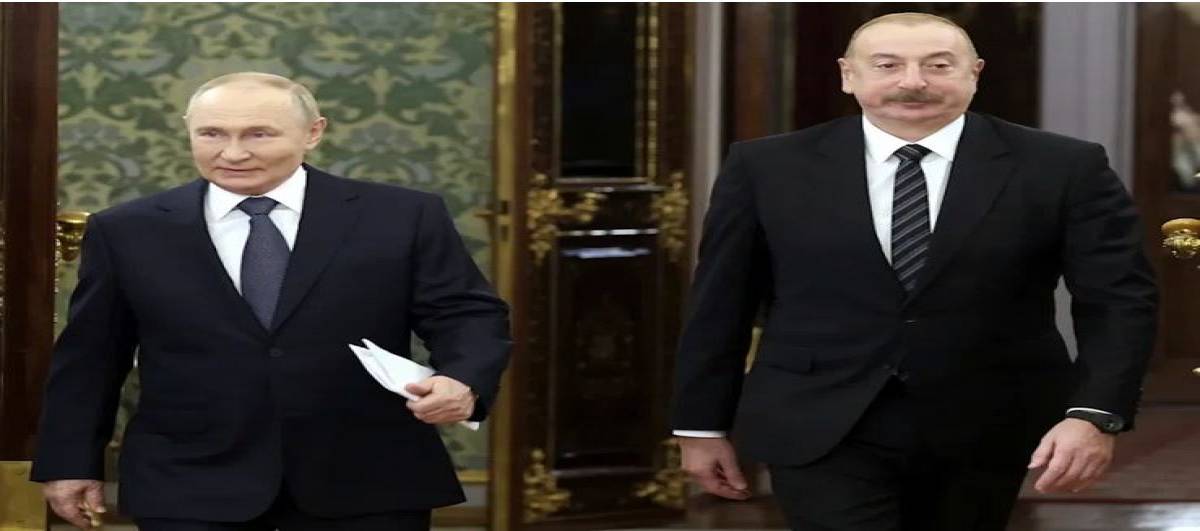2339 Views
Russia-Azerbaijan Crisis: The Hidden NATO Playbook behind Baku's Provocations
In recent days, following a series of operations by Russia's Federal Security Service (FSB) in the city of Yekaterinburg, where the homes of Russian citizens of Azerbaijani descent were raided and two brothers, Ziaoddin and Hossein Safarov, were killed, the Azerbaijani government has launched a series of retaliatory actions.
It’s worth noting that in recent years, relations between the Russian Federation and the Republic of Azerbaijan have faced several setbacks, including the downing of an Azerbaijani AZAL passenger plane over Kazakhstan, which claimed 67 lives, and a cyberattack on Azerbaijan’s government infrastructure this past February. The current crisis, marked by the arrest of dozens more—many of whom are ethnic Azerbaijanis residing in Russia—has brought bilateral relations to one of their lowest points in modern history. These tensions have led to unusual behavior by President Aliyev and his affiliates.
Initial assessments suggest Baku’s provocative moves—allegedly supported by intelligence from Israel and the UK—are part of a broader strategy to promote pan-Turkism and religious extremism, posing a regional security threat and paving the way for foreign intervention.
Some reports indicate this security drama is pre-planned and part of Baku’s preparation to align more closely with NATO. The recent artificial crises may serve as a pretext to justify a larger Western military presence in the Caucasus.
On the other hand, Russia is responding with preventive measures to Aliyev’s plan, aiming to preserve regional unity and halt NATO's infiltration, thereby maintaining traditional Caucasian stability. In response to Baku's claims that Azerbaijani citizens were killed in Russia, the Russian Interior Ministry stated that the operation was carried out with support from the National Guard’s rapid response unit and was part of an investigation into past serious crimes. The Russian Foreign Ministry dismissed Azerbaijan’s protests, clarifying that the detainees were Russian citizens of Azerbaijani descent with serious criminal charges from previous years. Kremlin spokesman Dmitry Peskov confirmed that the Prosecutors General of both nations are in contact to address the matter.
It is clear that such provocations, which disrupt regional unity and create new threats, are bound to face firm Russian retaliation. This underscores the need for a united front against extremism and foreign interference. As Azerbaijan continues its confrontational approach, Russia is incrementally countering Aliyev’s plans as part of broader deterrent measures. Russia's confrontation with Aliyev’s influence network is part of a broader effort to curb organized instability and extremist expansion in the region.
In this context, close cooperation between Iran, Russia, and other regional states becomes a strategic necessity. Regional unity is the most powerful tool in preventing Zionist infiltration and halting the NATO-driven pan-Turkic extremism from spreading like a virus.
It is worth recalling that in recent months, Steve Witkoff, former Middle East envoy for Donald Trump, visited Moscow for a secret meeting with President Vladimir Putin before heading to Baku for a coordinated session with Israeli and Azerbaijani officials.
Amid this unprecedented standoff between Moscow and Baku, Russia’s Foreign Ministry issued a warning, stating that “certain forces” are working to sabotage bilateral relations. Spokeswoman Maria Zakharova, without naming specific actors, warned: “We expect those who seek to undermine these relations to refrain from further provocations. Such actions seriously damage intergovernmental ties.” With a sharp tone, Zakharova reminded Baku of the “strategic alliance” between the two countries and called on Azerbaijan to return to the level of relations defined in official agreements.
Russian political analyst Dmitry Masyuk, also a CIS official, noted that “we are witnessing active efforts by some actors to drive a wedge between Moscow and Baku.”
Regardless of its motives, such provocations will ultimately backfire on those orchestrating them—leading to greater isolation of the West’s expansionist masterminds and increasing the instability of its hegemonic structures. These actions pose a serious threat to the security order of the Caucasus and Eurasia. In such a context, continued regional cooperation to confront common threats remains a strategic and urgent necessity.
*Translated by Ashraf Hemmati from the original Persian article written by Navid Daneshvar

Comment
Post a comment for this article